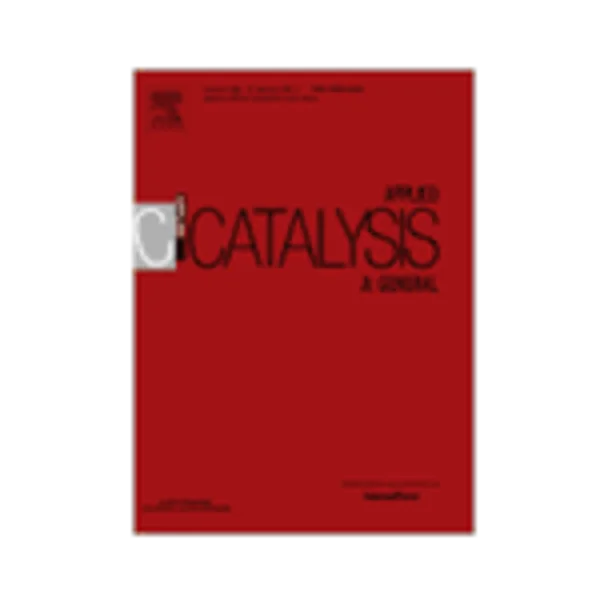-
effect of catalyst preparation conditions on the performance of eggshell cobalt/sio2 catalysts for fischer–tropsch synthesis
جزئیات بیشتر مقاله- تاریخ ارائه: 1392/07/24
- تاریخ انتشار در تی پی بین: 1392/07/24
- تعداد بازدید: 1204
- تعداد پرسش و پاسخ ها: 0
- شماره تماس دبیرخانه رویداد: -
in this article, we examine the impact of solvent and calcination conditions, during catalyst preparation, on the performance of eggshell catalysts. eggshell profile of silica supported cobalt catalysts provides a means to control selectivity in fischer–tropsch synthesis reactions. solvents such as water and alcohol attach to the silanol groups on the silica gel surface and compete with metal salts during ion exchange and adsorption. the solution properties impact the metal dispersion and interaction with the metal support. the calcination conditions (static versus dynamic, oxidizing versus reducing atmosphere) also have an impact on metal dispersion and support interaction. ethanol proved to be a better solvent for enhancing the dispersion due to its surface wetting pattern while direct reduction in dynamic hydrogen provided gradual decomposition of the cobalt precursor thus reducing agglomeration. the use of water as a solvent and a static air environment during calcination led to lower dispersion. nitrogen physisorption experiments showed that under favorable conditions, synthesized eggshell catalyst retains most of the original support surface area. surface elemental composition using xps indicate that the effect of solvent was stronger than the calcination environment in determining catalyst dispersion. this result was also confirmed by hydrogen chemisorption studies. tpr results suggested that back reaction of calcination product (especially h2o) and the agglomeration were competing phenomena in a static oxidizing environment. however, hydrogen chemisorption indicated that metal agglomeration was far more significant than the back reaction in static air atmosphere. catalyst activity and selectivity were tested in a fixed bed (fbr) reactor fitted with gc and ftir analyzers. the eggshell catalyst demonstrated high activity as expected; however, selectivity of co2 in our fixed bed catalytic reactor was higher than usual. the distribution of liquid hydrocarbon was in the narrow range of diesel and aviation fuel.
مقالات جدیدترین رویدادها
-
استفاده از تحلیل اهمیت-عملکرد در ارائه الگوی مدیریت خلاقیت سازمانی و ارائه راهکار جهت بهبود
-
بررسی تاثیر ارزش وجوه نقد مازاد بر ساختار سرمایه شرکت های پذیرفته شده در بورس اوراق بهادار تهران
-
بررسی تأثیر سطح افشای ریسک بر قرارداد بدهی شرکت های پذیرفته شده در بورس اوراق بهادار تهران
-
بررسی تأثیر رتبه بندی اعتباری مبتنی بر مدل امتیاز بازار نوظهور بر نقد شوندگی سهام با تأکید بر خصوصی سازی شرکت ها
-
تأثیر آمیخته بازاریابی پوشاک ایرانی بر تصویر ذهنی مشتری پوشاک ایرانی (هاکوپیان)
-
بکارگیری سلول های خورشیدی در تجهیزات کنترل ترافیک شهری
-
محافظت بلند مدت از خوردگی جیگ و فیکسچرها از جنس فولاد کربنی ساده
-
اثر فولاد با حد تسلیم پائین و تغییرات طول لینک بر رفتار لرزه ای بادبند واگرا با لینک قائم
-
لزوم توجه به گونه های گیاهی در بازآفرینی منظر رودکنار (ارائه راهکار بمنظور احیاء پوشش گیاهی رودکنار کارون در شهر اهواز)
-
effect of magnetic iron oxide nanoparticles in surface water treatment: trace minerals and microbes
مقالات جدیدترین ژورنال ها
-
مدیریت و بررسی افسردگی دانش آموزان دختر مقطع متوسطه دوم در دروان کرونا در شهرستان دزفول
-
مدیریت و بررسی خرد سیاسی در اندیشه ی فردوسی در ادب ایران
-
واکاوی و مدیریت توصیفی قلمدان(جاکلیدی)ضریح در موزه آستان قدس رضوی
-
بررسی تاثیر خلاقیت، دانش و انگیزه کارکنان بر پیشنهادات نوآورانه کارکنان ( مورد مطالعه: هتل های 3 و 4 ستاره استان کرمان)
-
بررسی تاثیر کیفیت سیستم های اطلاعاتی بر تصمیم گیری موفق در شرکتهای تولیدی استان اصفهان (مورد مطالعه: مدیران شرکتهای تولیدی استان اصفهان)
-
طراحی چارچوبی برای مدیریت منابع انسانی کارآفرین محور در بخش دولتی
-
بررسی رابطه بین اعتیاد به فضای مجازی و گرایش به رفتارهای پرخطر در نوجوانان
-
تاثیر ارزش ویژه برند، هویت برند و وفاداری به آن بر قصد خرید مجدد مشتریان از صنعت کفش های ورزشی
-
بررسی گوشه سازی گنبد در مجموعه سلطان محمود بندرآباد
-
اثربخشی بازی درمانی گروهی مبتنی بر رویکرد شناختی رفتاری بر اختلالات رفتاری دانش آموزان دختر پایه اول ابتدایی




سوال خود را در مورد این مقاله مطرح نمایید :